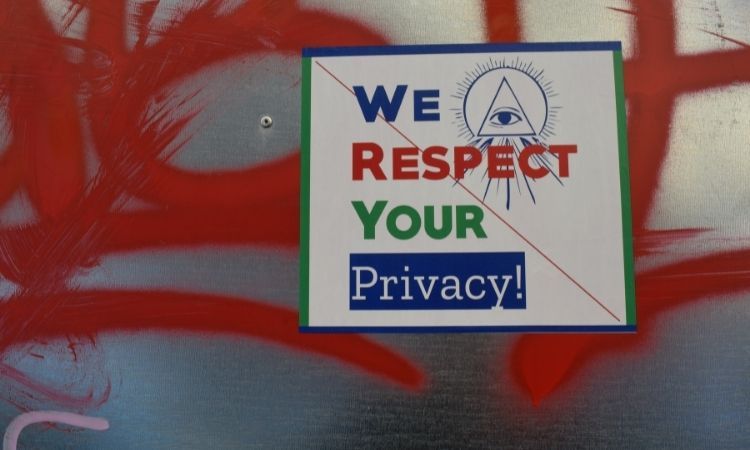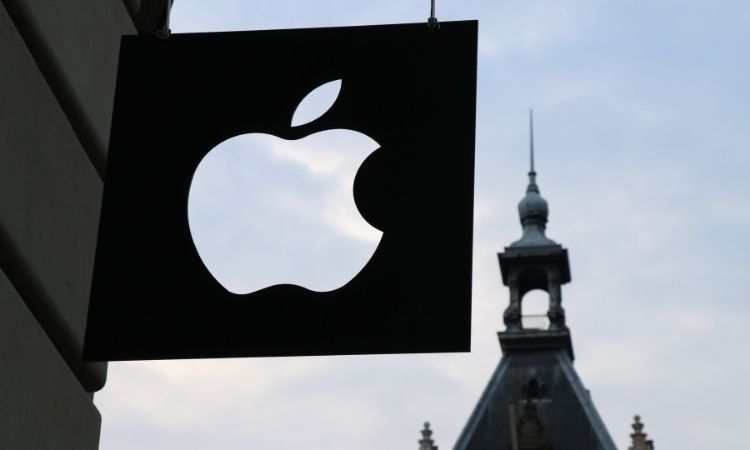Apple’s release of its iOS 14.5, iPadOS 14.5, and tvOS 14.5 operating systems gathered even more attention than updates from the company usually do. That was because of a new App Tracking Transparency (ATT) feature.
It claimed to give people more control over if apps collect data about them. However, some research suggests it might not work as well as expected. So what is Apple's ATT feature? And does it actually protect your privacy?
How Do You Use the Apple Transparency Feature?
Users of Apple products running the latest operating systems will see app-tracking notifications when using their devices. They appear whenever someone launches an application that wants to track them.
The notification asks if you’ll allow a specific app to track your activity across other companies’ applications and websites. From there, you either select “Allow” or “Ask App Not to Track.” Choosing the second option blocks the app’s developer from accessing the system advertising identifier. The app also cannot gather information associated with you or your device.
You can also apply your choice across all apps used by tweaking a few settings. Go to Settings on your Apple device, then tap Privacy. Select Tracking, then find the toggle for Allow Apps to Request to Track. Turning it off blocks apps from tracking you, and you’ll no longer see the notifications.
On this screen, you'll also see a list of apps that have asked for permission to track activities; this will likely include social media. You'll probably raise an eyebrow to see services on there that have absolutely no reason to track you. You can toggle individual apps to allow them to track you using identifiers here too.
Apple also published a transparency framework page for developers. It clarifies that app creators must use it if their products collect and share user data. Additionally, those parties can customize the notification messaging to tell people why the app gathers the information it does.
Why Has Apple Introduced App Tracking Transparency?
Apple is one of many companies aiming to give people more control over how third parties use their information. With cyberattacks and data leaks regularly making headlines, it’s no wonder many people have made their privacy a top concern.
Mary Grieco has extensive advisory experience in consumer privacy law compliance and has a certification from the International Association of Privacy Professionals. As she explained:
“There's a trend among existing privacy laws and those that are in the works of giving consumers more ability to understand and know what happens with their data, and that has to be balanced with companies' rights to advertise and market goods and services.”
Perhaps that’s why, when Apple celebrated Data Privacy Day in 2021 and previewed the ATT feature, the company’s initiatives took center stage. For example, it released a report confirming that apps have an average of six trackers from other companies.
In that case, Apple’s solution to stop those trackers from getting the intended results sounds great for privacy-minded people. However, researchers caution against feeling too hopeful.
Transparency Framework Ineffective, Study Shows
In September 2021, ex-Apple engineers who now create open-source privacy software and work to increase transparency in tech released a study they performed to test whether the ATT works as promised.
The research involved testing 10 popular apps (all within the top 10 of their respective sections of the App Store at the time of the study) and noting the differences when the researchers selected to allow or forbid third-party tracking via the ATT feature. These were:
- Cash App.
- Yelp.
- Starbucks.
- DoorDash.
- Peacock TV.
- Streamer Life!
- Grubhub.
- Run Rich 3D.
- Subway Surfers.
- Telegram.
They found that two of the 10 apps—Starbucks and Cash App—did not ask for tracking permission.
Only Telegram had no trackers present, aligning with its publicized privacy-first ideals.
The results will undoubtedly disappoint people who saw Apple as a privacy pioneer. The researchers concluded that using ATT did not reduce the total number of third-party trackers. Moreover, it only had a minimal impact on the connection attempts they made.
Another unfortunate finding was that these third-party trackers received detailed user and device data, even when a person explicitly selected the ATT option that supposedly disallows such activity. The study’s authors deemed the Apple framework “functionally useless” for barring third-party tracking.
Why Did the Apple Transparency Efforts Fail?
You may understandably wonder how the ATT privacy feature fell so far short of expectations. When the researchers took a closer look, they found that Apple’s narrow definition of what constitutes tracking activity was the primary problem.
Apple only forbids tracking activities that fulfill all these conditions:
- It links user data from one website or app to another.
- It must do such linking for advertising targeting or ad measurement purposes.
- It does not appear on Apple’s acceptable tracking behaviors list.
Between the lines, there's a lot of gray area that could be (and seemingly is being) exploited.
The researchers also identified tools that help marketers and other parties circumvent the ATT framework. They cautioned that Apple’s efforts only give an illusion of privacy rather than causing actual progress.
A Step in the Right Direction
But let's not get too negative here. The inclusion of the ATT framework at all is a positive. Apple representatives have so far not commented on the study or other allegations elsewhere that its framework needs improvement. However, even though that tool proved disappointing, there’s still reason for hope.
Privacy is a much-discussed topic among today’s tech enthusiasts. Apple at least is arguably pushing for that discussion among average users too.
As more people talk about it and take steps to show they dislike or won’t use apps that collect too much data from them, decision-makers at the world’s biggest and most influential tech companies are more likely to realize it’s time for real action and positive change.





